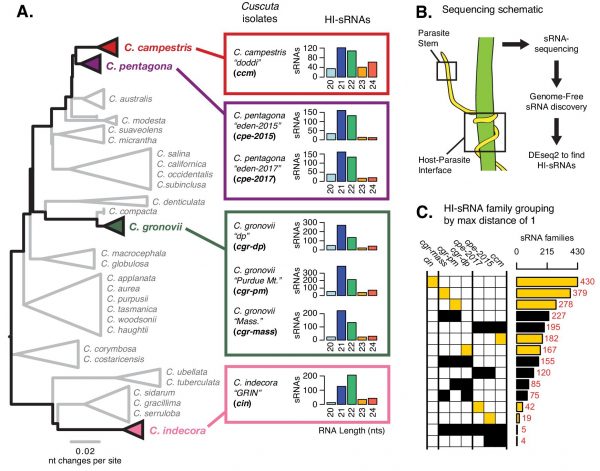By: Nathan R Johnson, Claude W dePamphilis, Michael J Axtell
Trans-species small regulatory RNAs (sRNAs) are delivered to host plants from diverse pathogens and parasites and can target host mRNAs. How trans-species sRNAs can be effective on diverse hosts has been unclear. Multiple species of the parasitic plant Cuscuta produce trans-species sRNAs that collectively target many host mRNAs. Confirmed target sites are nearly always in highly conserved, protein-coding regions of host mRNAs. Cuscuta trans-species sRNAs can be grouped into superfamilies that have variation in a three-nucleotide period. These variants compensate for synonymous-site variation in host mRNAs. By targeting host mRNAs at highly conserved protein-coding sites, and simultaneously expressing multiple variants to cover synonymous-site variation, Cuscuta trans-species sRNAs may be able to successfully target multiple homologous mRNAs from diverse hosts.
